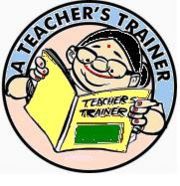LINKAGES OF A DIET/CTE WITH NON GOVERNMENTAL ORGANISATIONS
Overview
|
Let us begin by reading these paragraphs from the Chapter on Elementary Education (SSA & Girls Education) for the XIth Plan Working Group Report
Public-Private Partnership in SSA
The role of NGOs, voluntary organizations has been discussed in relation to the development sector and education over the last three decades. The NGO sector has changed considerably since the mid-nineties. More and more NGOs and Foundations entering the field of education. A number of Foundations supported by corporates or wealthy individuals in India and abroad have also been engaging in different aspects of the field of education and allied sectors. Another remarkable difference that has come about over the last five years or so is that the number of voluntary organizations that want to work in collaboration with governments at different levels has increased considerably and this has been reciprocated to some extent by governments at different levels.
The financial contribution of the voluntary sector to the efforts towards universal elementary education is quite small compared to the resources of the government. In fact, most NGOs do not have sufficient financial resources of their own and find it difficult to raise resources. But, more than the financial help, the voluntary and the overall private sector can bring with it dedicated people, expertise and skills that are much needed in order to improve the status of education, particularly the quality of education in India.
The areas of work where the voluntary sector or the non-governmental sector can make significant contributions are:
- Community mobilization, encouraging community participation, and interfacing with village education committees or panchayats and ward committees for greater awareness
- Experiments and innovations in education including use of technology
- Research and evaluation including data gathering and processing.
- Providing outsourced services that the government cannot deliver or deliver efficiently. These can range from designing teaching-learning materials to handling tasks related to the care and education of the extremely marginalized and vulnerable children.
- In addition to the above areas, it could be possible to seek help of NGOs and institutions in education planning and management –execution or capacity-building, or systematizing- especially at the district level. This may be important when planning for quality.
- Financial contribution to programs that could use funds beyond those permitted by norms or other restrictions.
|
LINKAGES - NON GOVERNMENTAL ORGANISATIONS
Let us read the following quotation from the National Curriculum Framework-2005.
Reading
Role of NGOs, Civil Society Groups, and Teacher Organisations:
One of the distinct features of the last decade was the increasing involvement of non-government organizations and civil society groups in education. NGOs have played a major role in creating innovative models of schooling, training of teachers, development of textbooks and curricular materials, community mobilisation and advocacy. Their formal association with schools and resource centres would be extremely important for curriculum development, academic support, as well as monitoring and research. Civil society groups have also helped to give education a visible public space, and facilitated the emergence of a discourse on the child's right to education.
(NCF-2005, Chapter V, Page 121)
|

